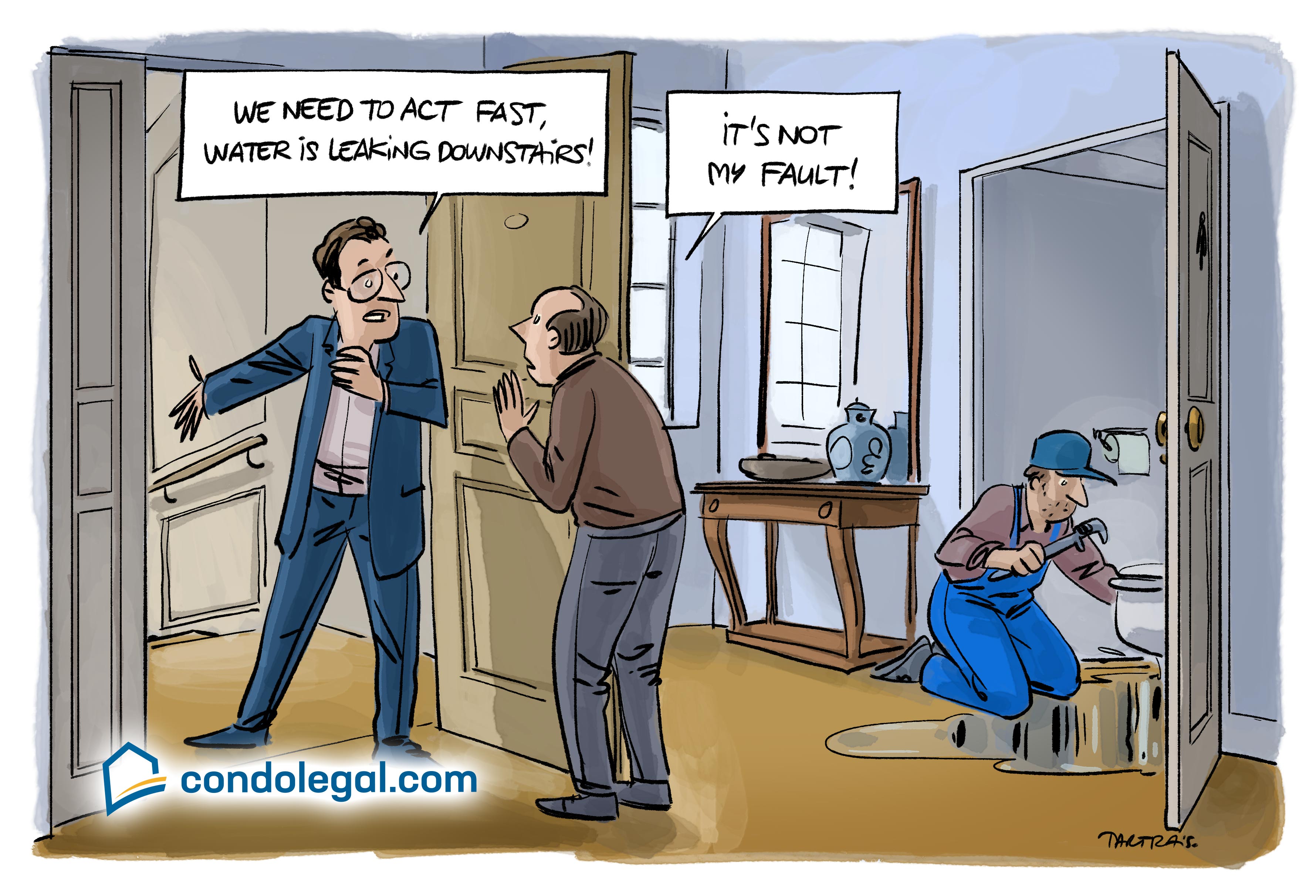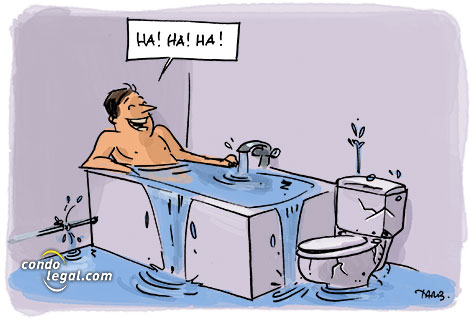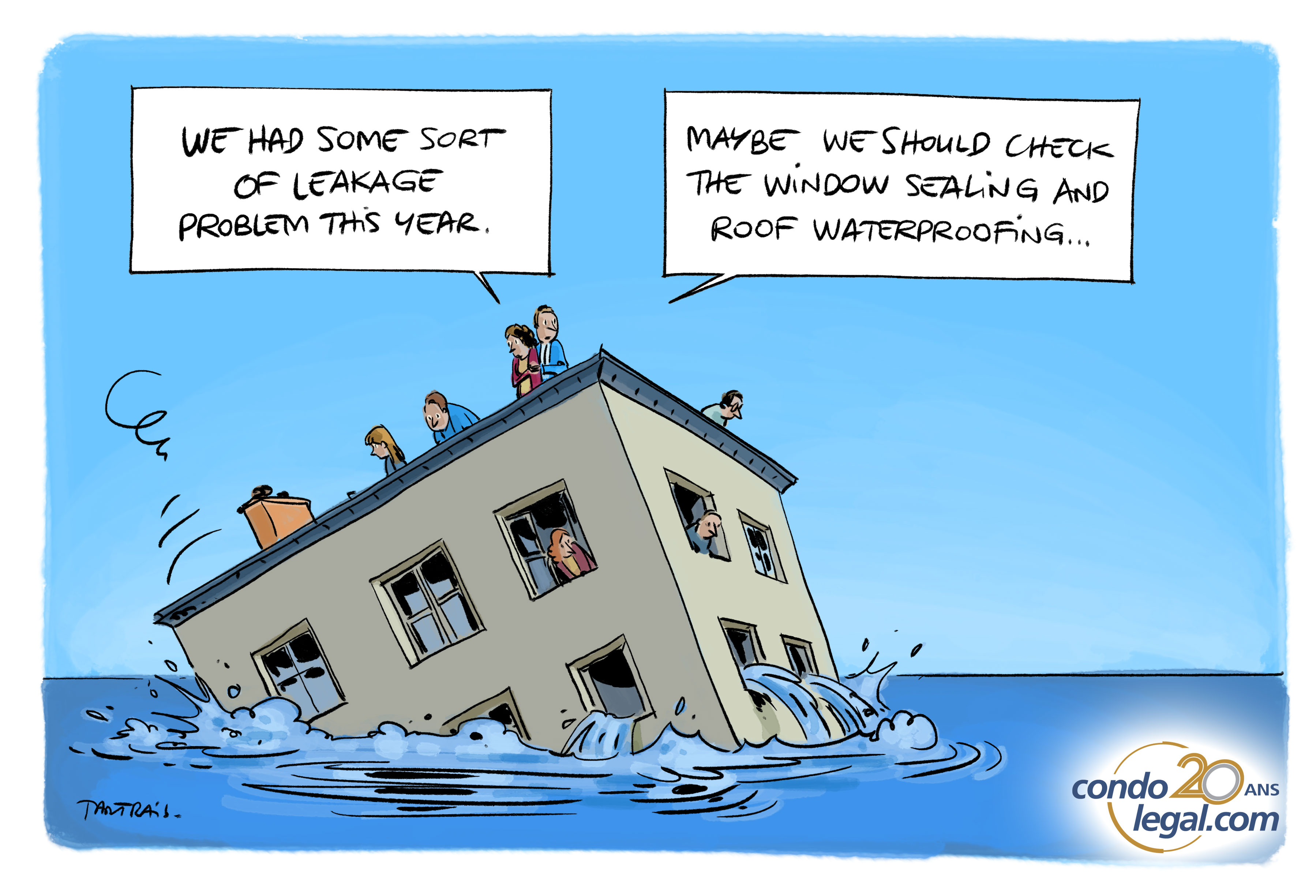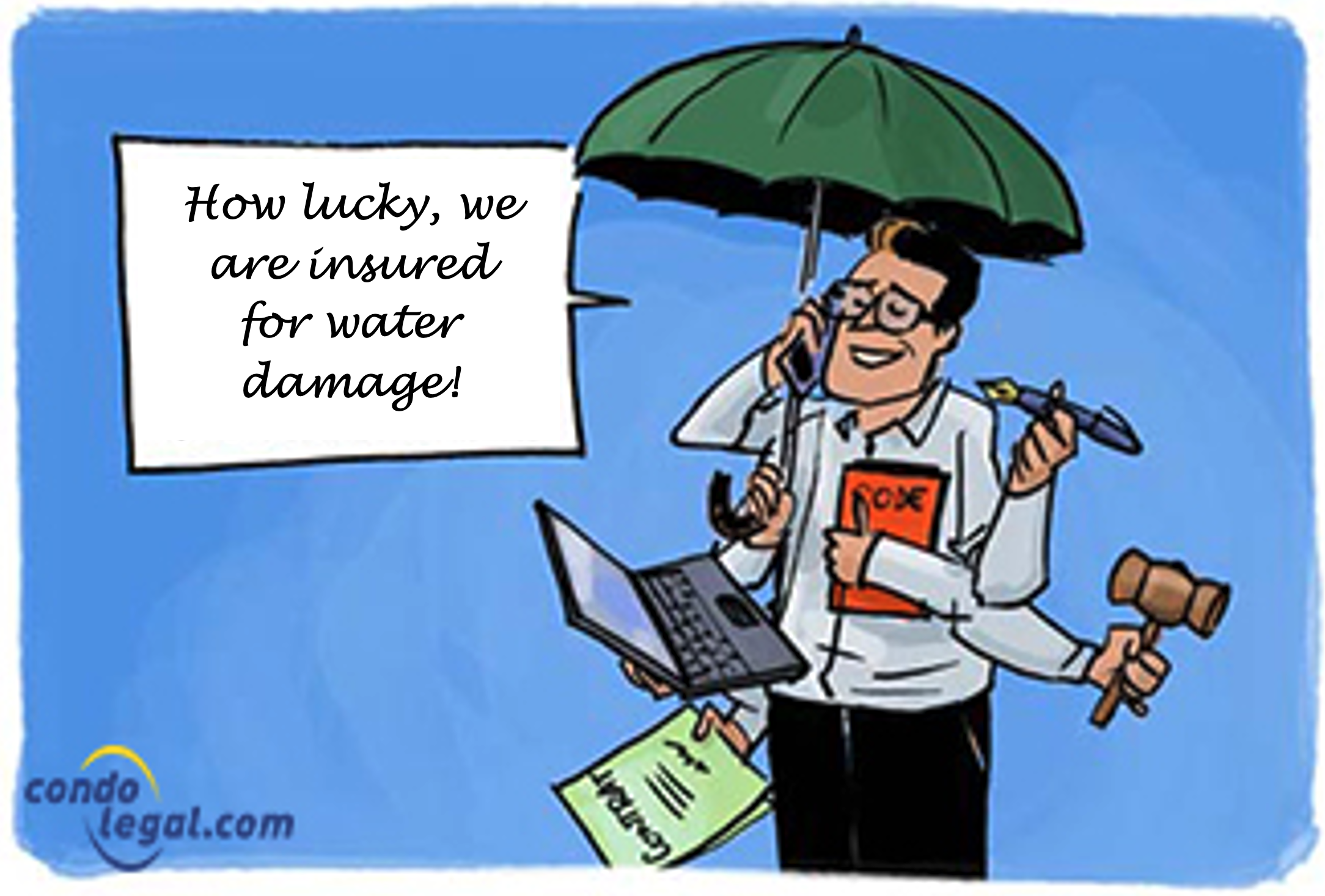Date published: 13/02/2024
Repairs in a co-ownership unit following water damage
 Following water damage in our building, we consulted a plumber to find the cause. The analysis revealed a malfunction in the toilet of our neighbor's apartment, indicating that a replacement was imperative to prevent other problems. Despite the plumber's clear diagnosis and the obvious proof of malfunction during his intervention – with the toilet overflowing upon the addition of just eight squares of toilet paper and requiring emergency unclogging – the concerned owner categorically refuses to replace her toilet. She continues to deny the existence of any problem, despite the panic observed during the plumber's visit. Questions: In this context, how can we legally compel the owner to replace her faulty toilet to prevent future water damage? Are there specific steps or legal remedies to be taken within the co-ownership framework to ensure the necessary repairs, especially when the faulty party refuses to admit the defectiveness of her equipment?
Following water damage in our building, we consulted a plumber to find the cause. The analysis revealed a malfunction in the toilet of our neighbor's apartment, indicating that a replacement was imperative to prevent other problems. Despite the plumber's clear diagnosis and the obvious proof of malfunction during his intervention – with the toilet overflowing upon the addition of just eight squares of toilet paper and requiring emergency unclogging – the concerned owner categorically refuses to replace her toilet. She continues to deny the existence of any problem, despite the panic observed during the plumber's visit. Questions: In this context, how can we legally compel the owner to replace her faulty toilet to prevent future water damage? Are there specific steps or legal remedies to be taken within the co-ownership framework to ensure the necessary repairs, especially when the faulty party refuses to admit the defectiveness of her equipment?
Reponse :In the face of water damage clearly caused by a co-owner's faulty toilet, it is indeed possible to take action to resolve the issue, especially if it causes damage to common areas or other private parts.
Here are the steps to follow:
-
Written notification: Communicate with the faulty co-owner in writing, clearly explaining the plumber's findings and asking her to proceed with the replacement of her defective toilet. Attach the plumber's report as proof to the letter.
-
Reminder of obligations: Emphasize that, according to the co-ownership declaration and the Civil Code of Quebec, each co-owner is responsible for the maintenance and repairs inside their unit, especially if it affects common areas or other co-owners.
-
Compliance deadline: Give her a reasonable deadline to carry out the necessary repairs. Specify that, after this deadline, the co-ownership syndicate will take the necessary measures to ensure the building's safety and integrity.
-
Syndicate intervention: If the co-owner continues to refuse, the co-ownership syndicate can directly intervene to have the repairs done, reserving the right to subsequently claim reimbursement of the costs incurred from the faulty co-owner.
-
Legal Action: In case of persistent non-cooperation, it may be necessary to sue the co-owner to obtain a court order requiring her to make the repairs, or to cover the costs of the damages caused. Recall that article 1066 of the Civil Code of Quebec provides that no co-owner can obstruct the execution, even within their private portion, of work necessary for the conservation of the building decided by the syndicate or urgent work. This obligation to allow work is enforceable not only against co-owners but also against occupants or tenants.
It is important to act quickly to prevent the problem from worsening and leading to additional costs or more extensive damage. Clear communication and documentation are essential throughout the process.
Back to questions and answers





